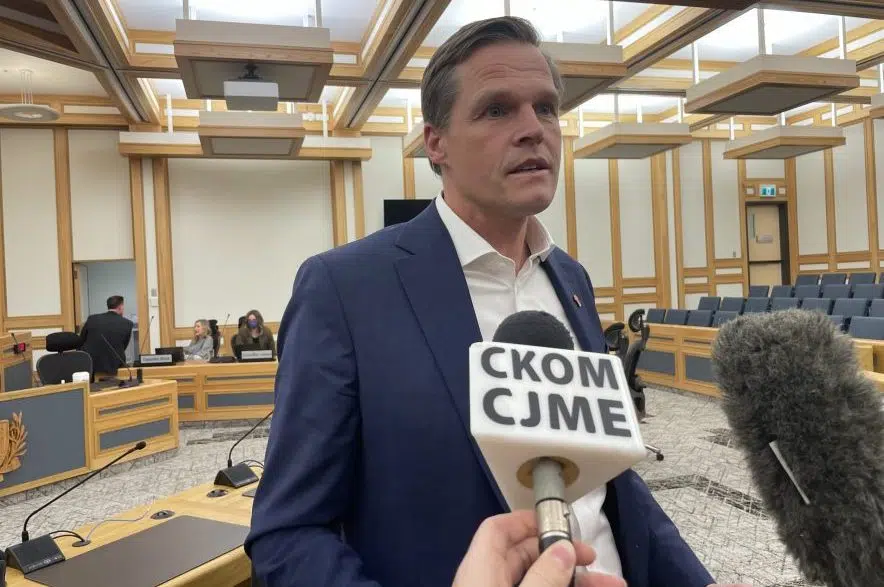Saskatoon Mayor Charlie Clark says he’s shocked at the extent of the city’s $52.4-million budget gap in 2024, and the predicted shortfall of $23.2 million in 2025.
Calling it a “brutal situation to be facing,” Clark said he understands how residents may be astounded at the numbers delivered Wednesday by chief financial officer Clae Hack.
“We’re facing this very, very challenging combination of the impact of inflation, the fact that we have not recovered our revenues from COVID, and there’s some pressures as we continue to be a growing city,” Clark explained.
He wanted the public to know that $30 million of the $52-million gap for 2024 is really about buying power.
“What we’re seeing with our contracts right now for things like road repairs, sidewalk repair, water and sewer main repair — going into next year — we’re going to get 30 per cent less buying power to keep up with our road maintenance plans and the work we’ve done to try to make sure that we’re making the investments we need,” he said.
“That is the majority of what the shortfall accounts for.”
Clark said he understands everyone is feeling the impact of inflation, and the demands on people’s pocketbooks don’t seem to end.
“We know that it’s unacceptable to be talking about anything like an 18 per cent property tax increase and so … that’s why we’re having extra special meetings in the months to come to come up with a way to resolve the situation,” he said.
During Wednesday’s announcement, Hack said a variety of options would be presented to city council and that “everything is on the table at this point.”
Asked whether that might include job cuts by the city, which employs more than 4,200 people, Clark hesitated.
“What we’re going to be doing is having meetings to look at each of these areas of operations that we have,” he said. “Every year, we have discussions about our staff and our employees … and in many cases what happens is we can bring on some employees to reduce overtime.
“But as we add and we see growing neighbourhoods like Brighton, Kensington and all these areas, we need to make sure we’ve got the people to drive the buses and sweep the streets,” he continued.
He cautioned it will be difficult to identify what the city can do without, as councillors meet to discuss budget options in the months ahead.
Chamber of commerce reaction
Greater Saskatoon Chamber of Commerce CEO Jason Aebig said city council will have to look at the “expense side of the ledger and start to make some very, very difficult decisions.”
Aebig was adamant that Saskatoon residents simply can’t afford a property tax increase of 18, 13 or even seven per cent next year, and again in 2025.
He said hearing how big the financial gaps Saskatoon is facing hit him and many others like a “clap of thunder.”
“It’s going to be a difficult five or six months,” Aebig said. “Council is going to have its work cut out for it.”
He added there wasn’t much room left in households or on business balance sheets to absorb big tax increases, because everyone’s dealing with higher everyday bills.
“It would most certainly mean a chill over the business climate in this city,” Aebig cautioned. “Any business looking to expand or set up operations here would be taking a sober second look at those plans.”
For existing businesses, if there were to be a large property tax increase, he believed it would be a tipping point where some would have to decide whether they could keep their doors open.
He didn’t believe the city had a choice anymore on whether the size of its workforce should be reduced.
“All of us want the best city we can afford, and where we’ve landed is a situation where we have a city we cannot afford at this point in time,” he said. “Decide what matters most and what we can afford and proceed on that basis.”
Aebig also credited city administration for beginning budget-related discussions now as opposed to having an 11th-hour meeting later in the year.











